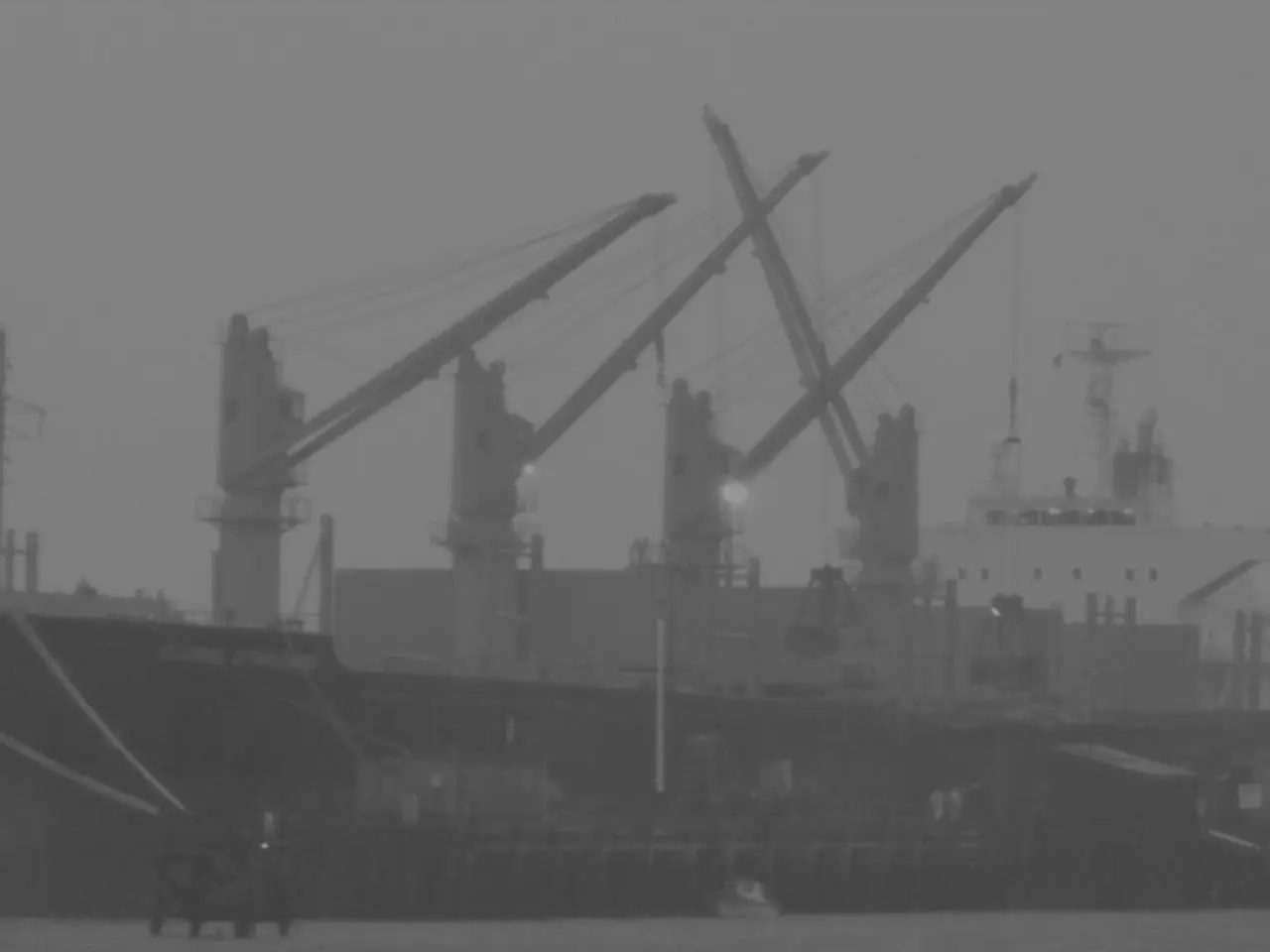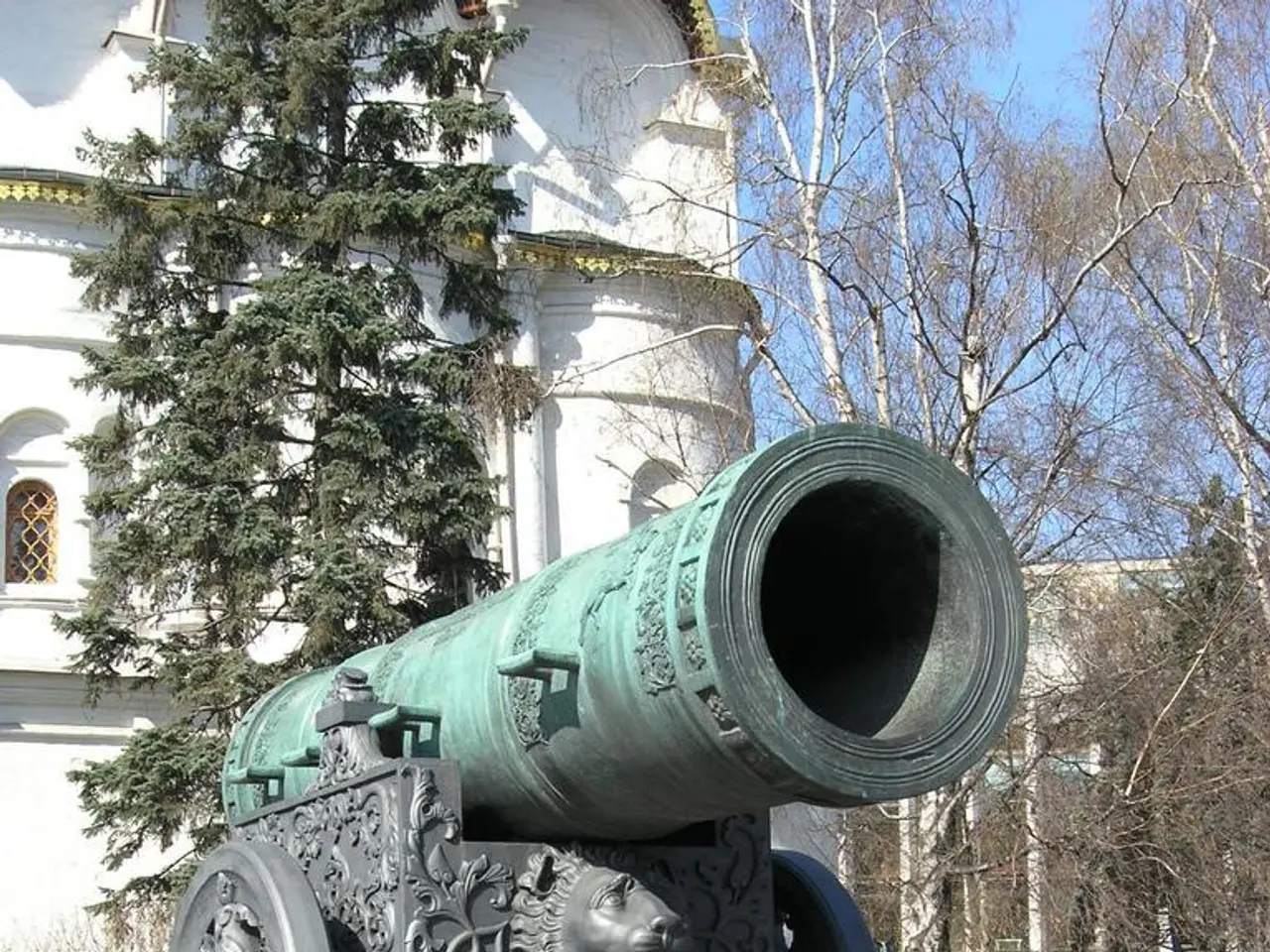Romania will penalize attempts to evade sanctions enforced against Russia, according to a government official.
In an effort to further counteract actions that undermine Ukraine's territorial integrity, sovereignty, and independence, Romania has announced new measures to enforce EU sanctions against Russia.
According to Romania's foreign minister, Oana Ţoiu, the new enforcement includes a focus on entities attempting to circumvent sanctions, particularly at the fleet level. This is an extension of the EU's efforts to extend sanctions to intermediaries helping Russian companies bypass previous sanctions.
The new sanctions enforcement in Romania aims to prevent entities from bypassing the sanctions through intermediaries. To achieve this, Romania will adopt a legislative act to criminalize companies and individuals who attempt to circumvent the sanctions imposed on Russia at the European level.
In addition, a total of 444 Russian vessels are now banned from port access as part of the new sanctions. This ban is aimed at countering what the EU Commission calls "Vladimir Putin's shadow fleet circumventing the oil price cap mechanism."
The new sanctions package, adopted by the EU, lists 14 individuals and 41 entities responsible for actions that threaten Ukraine. The total number of individual listings in the EU sanctions list is now over 2,500.
The 18th sanctions package adopted by the EU includes a cap on the price per barrel of oil, as well as measures to reduce Russia’s energy revenues, target its banking sector, and enhance anti-circumvention efforts.
The European Union has recently emphasized the criminalization of the violation of Union restrictive measures. Directive (EU) 2024/1226 aims to harmonize criminal offenses and penalties across EU member states for violating these measures, including sanctions against Russia. All member states, including Romania, were required to transpose this directive into their national law by May 20, 2025.
However, specific details regarding Romania's plan to criminalize attempts to circumvent EU sanctions on Russia are not yet available. For a detailed plan specific to Romania, one would need to refer to the latest national legislation or official announcements from Romanian authorities.
[1] European Commission. (n.d.). Directive (EU) 2024/1226 of the European Parliament and of the Council of 27 June 2024 on the criminalization of the violation of Union restrictive measures. Retrieved from https://ec.europa.eu/info/law/better-regulation/have-your-say/initiatives/12943-Directive-on-the-criminalization-of-the-violation-of-Union-restrictive-measures
[2] European Commission. (n.d.). EU adopts 18th sanctions package against Russia and Belarus. Retrieved from https://ec.europa.eu/commission/presscorner/detail/en/IP_22_4118
[3] European Commission. (n.d.). Infringement procedure: Commission sends reasoned opinions to 18 Member States for failing to fully notify measures transposing the Directive on the criminalization of the violation of Union restrictive measures. Retrieved from https://ec.europa.eu/info/law/better-regulation/have-your-say/initiatives/12943-Directive-on-the-criminalization-of-the-violation-of-Union-restrictive-measures/news_en/article/infringement-procedure-commission-sends-reasoned-opinions-to-18-member-states-for-failing-to-fully-notify-measures-transposing-the-directive-on-the-criminalization-of-the-violation-of-union-restrictive-measures
- In light of Romania's commitment to enforcing EU sanctions against Russia, a legislative act will be adopted to criminalize companies and individuals attempting to bypass these sanctions, aligning with the European Union's focus on countering circumvention efforts in war-and-conflicts and crime-and-justice policies.
- Apart from the EU's efforts to criminalize the violation of Union restrictive measures, such as sanctions against Russia, general-news outlets have been reporting on the 18th sanctions package aimed at extending penalties to intermediaries helping Russian companies bypass previous sanctions, giving rise to a significant increase in the number of individuals and entities on the EU sanctions list.








